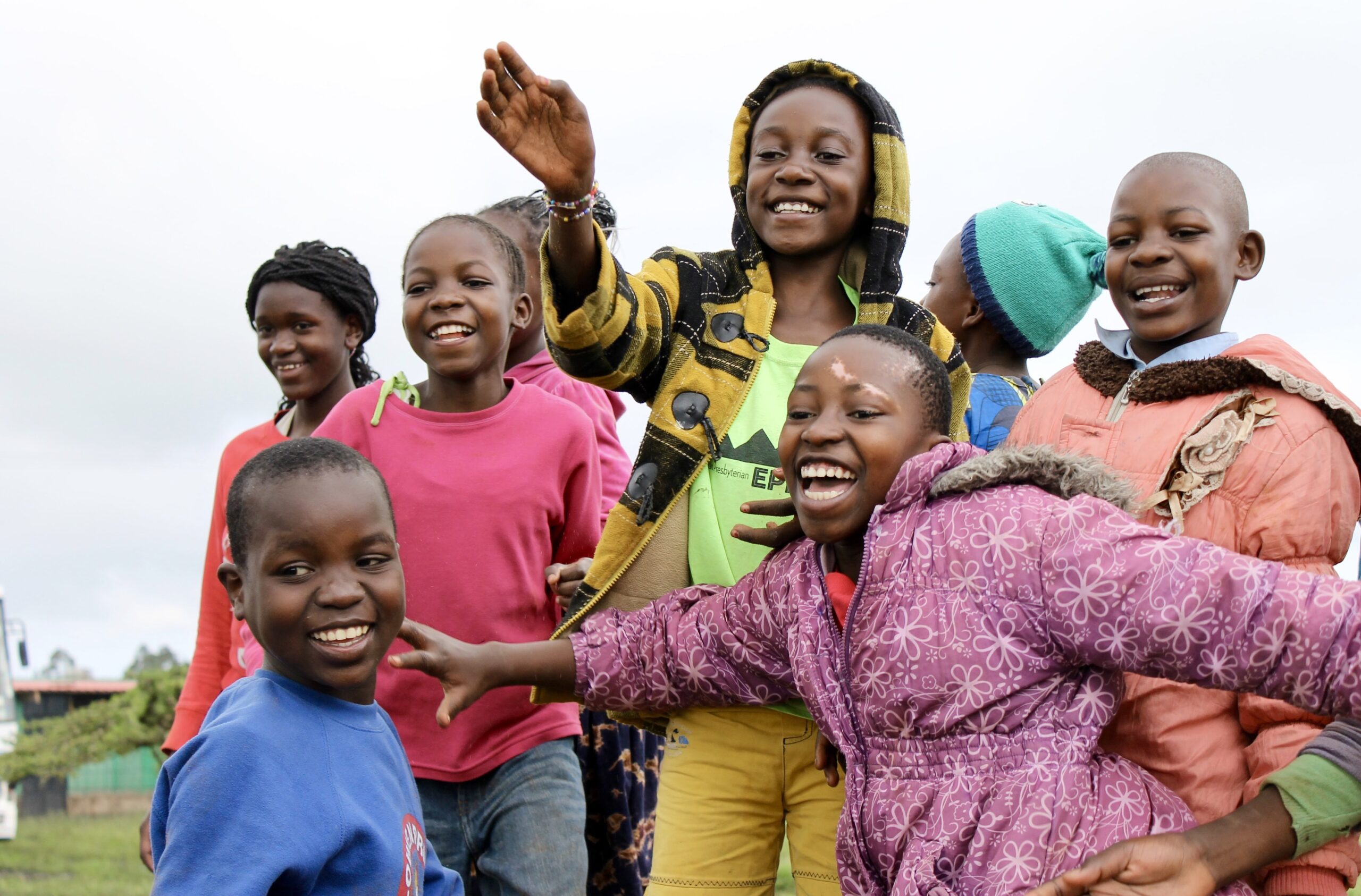THIS POST IS A PART OF VOLUNTEER TIME OFF SERIES, WHICH GIVES EMPLOYEES A CHANCE TO REFLECT ON THEIR TRIPS, ASK CRITICAL QUESTIONS, AND SHARE WHAT THEY’VE BEEN LEARNING. TO LEARN MORE ABOUT OUR VTO PROGRAM, CHECK OUT DAVID FOUSE’S POST.
In the year and a half I’ve been at Pinkston, few times have been more impactful on my work here than the one week I spent away on a mission trip to Kenya.
Earlier this year, I had the opportunity to travel to Nairobi with my church community and partner with a local ministry to help lead a week of vacation bible school for the children of Nairobi’s Kibera slum. I’ve always loved working with kids – before joining Pinkston, I was both a communications specialist and Spanish teacher at a small private school, and during my time in college I worked as a classroom leader for an urban after-school program. The chance to stretch those muscles through a week of VBS in Kenya was refreshing.
Our home for the week was a farm about an hour outside of the crowded city, hemmed in by rolling farmland and the impressive Ngong Hills, where we welcomed around 120 kids to Camp Mamlaka this year. Home life for these campers is spent in the claustrophobic alleys and shacks of Kibera, where some estimate around one million people live within an area just larger than one square mile. For them, the week on the spacious farm was a week of luxury both liberating and sometimes frightening.
Camp days were a marathon of games, small groups, teaching, dancing and singing with late nights and early mornings. We spent the week covered in mud and damp head to toe but surrounded by sunny faces who were so excited to be there. It was hard, exhausting work, but it was fulfilling. I’ll admit, I absolutely did not want to come back to Northern Virginia.
Immediately upon returning from my week in Kenya, there was a surprising amount of culture shock in the drastic change from the outdoor, active, minimalist way of living in Kenya to the relatively stationary life of my desk job. I found myself sitting behind a computer screen writing emails where just days before I’d been running around in the Kenyan mud, getting my hands literally and figuratively dirty, face to face with my purpose. It felt like Kenya had opened up a gulf between what I was doing everyday and the impact I wanted to have on the world, and I was stuck one side looking impatiently toward the other.
But with some reflection, I’m beginning to see my work at home a bit differently thanks to my time away.
The seed of that shift was planted during the large group teaching of our American team leader, Jay. At camp, he stood up every morning and taught the biblical story of Daniel to hundreds of people ages 5 to 50. The native language of most of his listeners? Swahili.
While we ran the camp in English, and nearly all the kids were fluent in the language, sharing a complex story was no simple task. So, Jay enlisted the help of Teacher Josephine, a member of the Kenyan team.
Josephine was Jay’s translator as he taught, following behind his words every few phrases to reinforce the story in a way his listeners could really connect with. But Josephine didn’t simply repeat the words in another language. She engaged in the storytelling itself, communicating both the feeling and meaning of the story with her presence, tone and gestures. It struck me as Josephine spoke that she clearly had a grasp not just of Jay’s immediate objective, but the grander story he was working to tell. With that knowledge and her unique skills, she served as the bridge between cultures, between languages, between ignorance and understanding.
In the same way, I’ve been reflecting on how I as a PR professional serve as a type of Teacher Josephine for the clients we work with.
Clients have a story, but it isn’t enough for them to just say the words – they want that story to reach into the minds of their consumers, their donors, the public at large, and move them. To do that, they often need a translator. We can serve as that intermediary, molding and infusing the story with energy in our telling of it and crafting our language for maximum impact and engagement.
Since Kenya, I’ve worked with clients whose message is getting lost in translation. They often know what they want to say but not exactly how to say it in a powerful way. I’ve been challenged to learn, to shape vocabulary and to tell a story on behalf of these clients to people outside their industries – all things I understand better because I saw them in action from the audience of a VBS camp halfway around the world.
There’s something powerful in getting out of your comfort zone. Without the time I spent in Kenya, my perspective on my work would be much narrower. It was a disruption in the best way. In wrestling with the restlessness that followed the trip, I had to shake loose the routines I’d fallen into and get creative in thinking about what I do every day.
I may have just experienced one week of service, but that time has had an impact that continues. My work at Pinkston is different because of the work I got to do at Camp Mamlaka, and I look forward to more transformational trips like it in the future.
